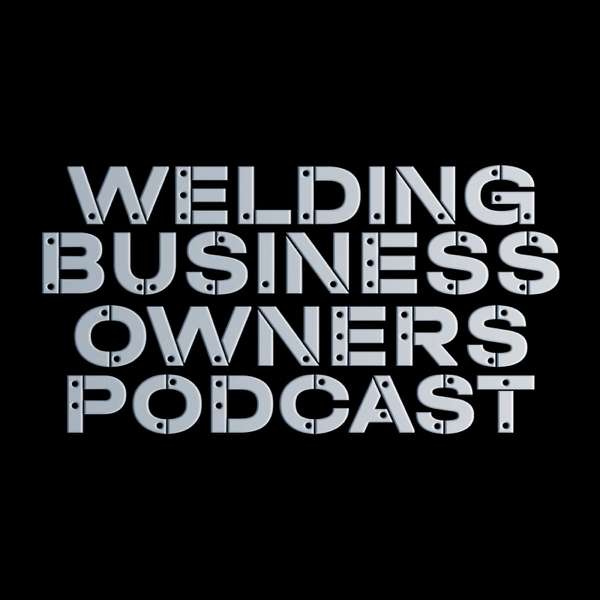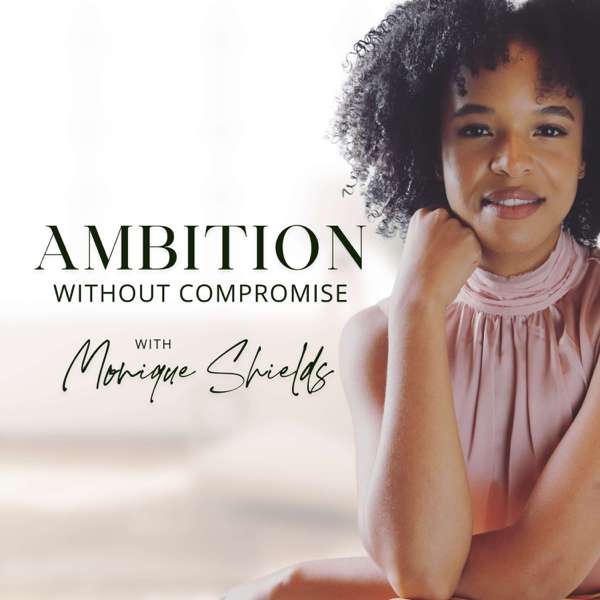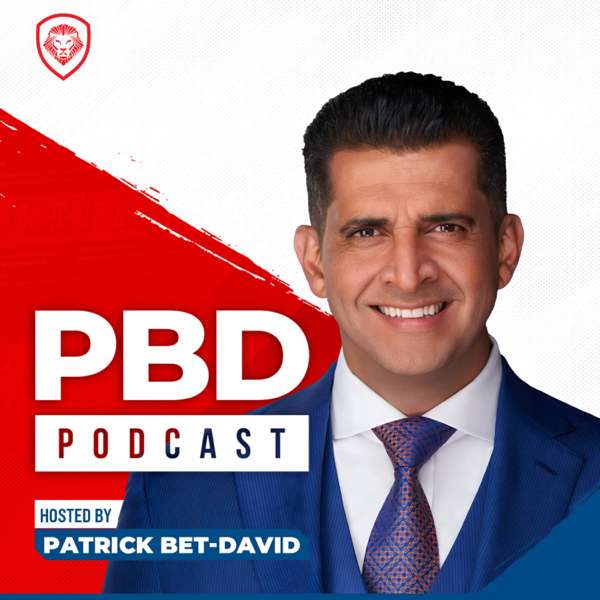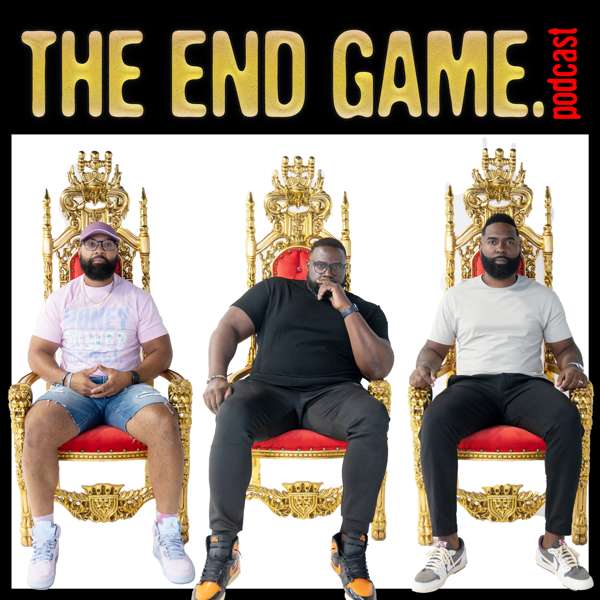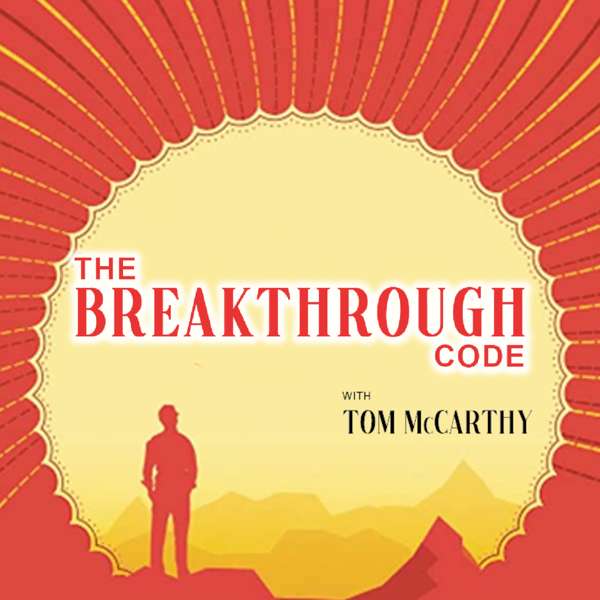Got an entrepreneurial spark but haven’t yet aligned your passions with your work? That’s when the joyless daily grind can set in — but also some real creative tension and the possibility for exciting career growth and satisfaction. Eric Beenken and Brenan Kurvers personal stories can show you how industry specialization may be just the thing that turns your spark into a fire. Industry Forward starts now!
[00:00:00]
John: Welcome, CLA family, to Industry Forward, a podcast
designed to tell the stories behind the CLA promise. We create opportunities
when we live the CLA culture, leadership, ownership, entrepreneurship.
[00:00:17]
At the center of CLA promise is our purpose, our why for
existence, to create opportunities for our clients, create opportunities for
our people, and create opportunities for our communities. Industry
specialization propels, enables, and drives all of those. Industry specialization
drives seamless capabilities. Industry specialization drives careers.
[00:00:46]
So why specialize? A better question is, “How do you
get started? And what’s it like when you’re just getting going?” So today,
we’ve invited Eric Beenken from our River Valley region, specializing
agribusiness but really in the pork industry, and Brendan Kurvers from our
Minneapolis office. He’s part of the M&D team but has been taken on the
leadership of driving our food and beverage practice. Welcome to the mic, guys.
[00:01:15]
Eric: Thanks, John.
[00:01:16]
Brendan: Thanks, John.
[00:01:17]
John: Glad to have you here. I’m gonna start with a really
simple question if I can today, just to get started. Let’s start with your
personal story. Brendan, tell us a little bit about yourself.
[00:01:27]
Brendan: Yeah, certainly. Grew up in the south side of
Minneapolis here, so grew up in Burnsville, Minnesota, which is about three
suburbs out of Minneapolis. Wound up at North Dakota State in Fargo. So spent
some time in North Dakota and then found myself back in Minneapolis, working
for CLA shortly thereafter college. Really got my start with CLA in 2012 with a
manufacturing, distribution internship.
[00:01:52]
And then found myself back at CLA in 2013 with another
summer internship, and then finally fulltime–As Dudley Ryan would say, I was a
seasonal intern. But found my way back fulltime in 2014. And that’s where I
really nestled into the manufacturing, distribution group.
[00:02:09]
John: So why accounting and finance? Why CPA?
[00:02:13]
Brendan: Yeah. It’s an interesting story, John. I actually
really went up to North Dakota State to be a pharmacist.
[00:02:19]
John: A pharmacist?
[00:02:20]
Brendan: Yeah. So a little bit of a pivot from what a CPA
does on a day-to-day. But at the end of the day, where I found my passion, when
I was in high school, was helping people. And the easiest thing that I could
really see was something that was frontline and center for me, my mom went
through two bouts of cancer when I was growing up. And I saw the immense amount
of drugs that were going into her body to combat this cancer.
And something, for me, was pharmacy seemed like a good place
to go and help find proactive solutions for this. Move forward a little bit
further into my time at CLA and I tried a round of Whole30.
[00:02:56]
John: Ah, very good. So we’re gonna probe that one a little
bit more. Before we do that, I want to hear Eric’s story.
[00:03:03]
Eric: Yeah. So my story starts on the farm. I come from two
farm families. My dad’s side was pork and grain. And my mom’s side was a small
diary, but I was born in the south metro. So my connection was through my
extended relatives. And I have a lot of memories of going down in the farm in
August and baling hay, watch my grandfather milk the cows in the parlor.
[00:03:30]
And there was just something that stuck with me as I grew up
that ag is special. There’s just something about the farm.
[00:03:38]
John: And it has its own language, bales of hay, milking
parlor. I’m guessing many people in the sound of my voice have no idea what
you’re talking about.
[00:03:46]
Eric: No, no. No, they don’t. No.
[00:03:48]
John: More about your career.
[00:03:50]
John: Along line with that is my dad was a controller at
Agriliance, a cooperative here in Minnesota. My uncle is a CFO of a coop in
Iowa. So there was a finance aspect. So I grew up with a family of accountants,
a family of farmers. And when I was introduced to the firm in 2006 through
summer experience, I connected with Cindy Scheid out of the New Ulm office at
the time. And she was explaining what they do.
[00:04:17]
And at the time, the ag tax capital of the firm, they really
were*. So I looked at it and said, “I can work in rural communities,
serving farmers and aligning with my accounting or finance passion. This could
be a great marriage.” So that’s where my relationship started. And I was
hired on fulltime in 2008. And I’ve been in River Valley ever since.
[00:04:39]
John: Yeah. Very good. So a little bit more about your
career. So when did you choose ag, right out of the gate?
[00:04:44]
Eric: I wish it was that easy, John. No, it wasn’t. When I
first started, my focus was more on the service line, which was tax. I almost
touched every other industry besides ag or manufacturing until I think it was
the first year manager.
[00:05:00]
John: I understand, along the way, you weren’t real happy
about that.
[00:05:05]
Eric: Yeah. That’s a fair statement. So when you have an
entrepreneurial itch, even at your three, four, five, when you’re not aligning
your passion with what you’re doing day to day or who you’re serving, you feel
anxiety, you feel disruption needs to happen to change ’cause you’re not where
you should be.
[00:05:27]
John: I can see on your face, which I have the benefit of
seeing, that there was pain involved in that at that time. It wasn’t fun.
[00:05:36]
Eric: No, it wasn’t. It was a grind. You felt like you were
a cog in the system, grinding day in and day out.
[00:05:43]
John: So how did you change it?
[00:05:45]
Eric: Well, at first, I thought, “I got to leave. This
isn’t the place for me,” and looking outside of the firm. The culture
wasn’t right. So I stayed. Even though I was in the grind, I stayed. And then
they came to me and said, “Hey, would you like to serve in our ABC
manufacturing team?” And I said, “You know what? I need a change.
Absolutely, let’s do this.” And so I did. And the first client I went to
was a pork farmer.
[00:06:11]
John: Really? So the very first–
[00:06:13]
Eric: Very first one.
[00:06:15]
John: So first year manager, you’re five, six, ag, because
someone took the time to invite you…
[00:06:24]
Eric: Right.
[00:06:25]
John: And draw you in. And then, of course, you found it.
Was the passion born right then, right there?
[00:06:34]
Eric: You know, it probably wasn’t at the very first start,
but what I really enjoyed was the complexity. You know, people don’t think
farming is complex. I can see it in your face. And you’re like, “No.”
[00:06:44]
John: I grew up on a farm.
[00:06:46]
Eric: But when you start talking about derivatives and
commodity pricing and marketing, it is an incredibly complex industry. And I
just found myself getting sucked in.
[00:06:57]
John: Okay, I want to come back on that one. I want to know
more. Brendan, let’s pick up your story. Yours was a much more focused story. From
the outset, M&D embraced you and gave you some freedom. Tell us about those
early years.
[00:07:10]
Brendan: Yeah, absolutely. I was lucky enough that the first
individual that I met from CLA was Erik Skie. Can’t find a much more impressive
manufacturing mind, in my opinion. So the very first interactions I had with
CLA was with one of our best.
[00:07:29]
And the passion that he was showing in that initial
interview when I was in college, sitting there, just attracted me to the firm
more than any kind of passionate feeling I’ve ever had. The next step was I got
down to Minneapolis, and who is the second person I meet? Samantha Metcalf. So
you can’t really meet two more passionate people within an industry.
[00:07:53]
So I was really lucky with kind of how that all played out,
but then it really came down to–you know, similar to Eric’s story, I think, I
was working some tax, I was working some assurance, really trying to find my
fit that first year. And I remember sitting in my cube one late night in March
and Sam brought over a project. I didn’t have anything else going on at the
time. I was a new staff. Work had slowed down. And it was a value add model,
very brand new.
[00:08:20]
Sam and Rob Tracy had developed this model. And I was able
to get my first flair of manufacturing consulting. And that was when I knew
this was the place for me.
[00:08:34]
John: So by my math, you’ve been with the firm, discounting,
of course, the internships, just shy of six years. Why food and beverage? Why
so early, in some of our people’s minds, have you selected this?
[00:08:45]
Brendan: Yeah. This concept of deep industry specialization
was always something that was really exciting to me. So that was something that
was always kind of a key pillar on our M&D team. I was sitting in a growth
network meeting here in Minneapolis, probably the first or second one that I
was ever at, every invited to. So this was when I was a senior. And the main
thing I kept hearing was, “We’re having trouble finding people that want
to step up and lead a market segment.”
[00:09:12]
And I said, “Hey, this is a great opportunity to get
some leadership experience.” And I kind of ticked on the list and I said,
“Hey, I know food. I worked for Cargill,” right? One of the largest
food companies in the world. So I knew that world a little bit. And then I
started doing a little research. So I ran some starter reports, found out that,
“Okay, CLA has an immense amount of food and beverage clients. However,
there’s not one single person that solely focuses on this.”
[00:09:42]
So we are serving the market but not in the most efficient
and effective way.
[00:09:47]
John: But there’s deeper passion to that, Brendan…
[00:09:49]
Brendan: Absolutely.
[00:09:50]
John: That you’ve shared with me in the past.
[00:09:52]
Brendan: Yeah.
[00:09:53]
John: A little deeper than just opportunity, what is that?
[00:09:56]
Brendan: Yeah. So it really comes down to probably the first
20 years of my life. I grew up on the Schwan’s man, right? The Schwan’s man
came once a week. So the freezer was full of all the food that we ate on a
daily basis.
[00:10:09]
John: Processed food?
[00:10:10]
Brendan: Processed, very processed. But it was great stuff.
Went to college, lived pretty much the same lifestyle, probably even more
unhealthy than I was growing up. And then when I got to CLA, there was kind of
this movement of a lot of the new folks that I was working with. It was this
concept of, “Okay, let’s be really holistic with our food.”
[00:10:30]
At the same time, you had way more opportunities in terms of
Whole Foods starting to pop up, Hy-Vees starting to pop up more than your Cub
Foods and Sam’s Club frozen foods sections really becoming an alternative
option in the twin cities. With all of this, I am thinking about kind of this
industry side on one side of my brain and then my personal life on the other
side of my brain.
[00:10:53]
And really, what I saw was, “Okay, I’m gonna do this
round of Whole30,” which opened my eyes to foods that I would never even
imagine touching in the first 25 years of my life. What really happened was a
life-changing experience to me.
[00:11:08]
And that was feeling energized without 15 cups of coffee,
feeling better without taking any sort of supplements, and really being able to
fully be the best person I can be via eating the proper food. And, to me, that
was where I was able to connect my personal life with what I could do at CLA
and really get all-in on a community within the industry.
[00:11:35]
John: Ah, very good. So it became a passion.
[00:11:38]
Brendan: Absolutely.
[00:11:41]
John: Eric, you teased us by saying “I went deep”
because it became a bit of a passion, it was interesting, it was complex, it
was easy to demonstrate value perhaps. Tell us more about this going deep
because you needed to become an expert and you figured out how to do that.
[00:12:00]
Eric: Yeah. And I didn’t need to be an expert. I needed to
be an expert very quickly ’cause what I found out in my conversations with
those clients, I couldn’t participate in them ’cause the questions they asked
were so detailed. They wanted an advisor. And I could not be that advisor
without diving deep. So what I did, John, is I did a 28-day binge on everything
pork.
[00:12:28]
John: Whoa, whoa, whoa, whoa, whoa, whoa, whoa, 28-day
binge, everything pork. Even what you ate?
[00:12:33]
Eric: Not to the extent of Brendan’s what I eat, no, no. But
when you look at a pork producer, it’s genetics, okay? So what is genetics,
what’s the difference in different breeds, how do they raise the pigs, what do
they use, what’s their inputs, how do they market, what’s their risk
management. And then you have to go all the way to the meat side.
[00:12:54]
I mean, let’s face it. If there’s no demand, right, for
their product, it affects everything. It’s a giant chain.
[00:13:01]
John: So this 28-day binge was learning, literally, going to
college, if you will, on the pork industry.
[00:13:07]
Eric: Absolutely.
[00:13:08]
John: How did you do that?
[00:13:09]
Eric: It was tough. I just sat down and said, “If I’m
gonna serve these clients and align my passion for ag with what’s in front of
me, I need to do this.”
[00:13:18]
John: Where did you find the information?
[00:13:20]
Eric: It was Pig Site, USDA, anything that was out on the
web that was legitimate.
[00:13:27]
John: So your best friend became Google.
[00:13:29]
Eric: Yeah, that’s a good way to say it. It was even diving
into tax and assurance. There are certain aspects of assurance–or I should say
accounting standards specific to ag, tax, farm tax is very different than
manufacturing service. It was everything. It was all encompassing.
[00:13:44]
John: So what did you do with the information?
[00:13:45]
Eric: I created what I call Pigs 101. It’s a 45 to 50 page
documents that lays it out from the history of pork production in the US all
the way to today. And it also includes areas of concentration in the United
States, so Ohio, Iowa, Minnesota, where is it located, who’s the top 40 pork
producers. I mean, it’s as good as I could have done at that point of putting
together.
[00:14:13]
And I say, “John, here’s everything you need to know
about pork.” And you can read those 50 pages.
[00:14:19]
John: So beyond yourself, how do you use this? Behind your
own knowledge, how do you use this?
[00:14:25]
Eric: I ask my team to read it before we go out there,
before we start engaging that client, whether it’s tax or assurance and say,
“All right, here is the vernacular.”
[00:14:34]
John: I do recall you mentioning you used some of the
framing for a presentation that you have done to the industry.
[00:14:41]
Eric: Yeah, I have. So along with that knowledge, if you’re
gonna get up in front of those prospects, of your clients, you got to be able
to walk the walk before you talk the talk. And so doing that deep dive allowed
me to get in front of those clients and prove that I know the pain they’re
going through. Before*, they had to tell me.
[00:15:02]
John: So what have been the results? So you did this work.
You went to school, did the 28-day binge, if you will, I assume you’ve updated
this.
[00:15:11]
Eric: Constantly. Oh, yeah.
[00:15:12]
John: Constantly updating, okay, because it’s just a growing
source of resources. You share it with the team members.
[00:15:17]
Eric: Yeah.
[00:15:18]
John: You expect your team members to learn it with you.
[00:15:21]
Eric: Yeah.
[00:15:22]
John: What have been the results?
[00:15:23]
Eric: To me, the results are the value the clients see in us
is more than just compliance now. I get calls from some of our largest pork
producers almost weekly. And our discussion is not about accounting and tax,
it’s about what we see in the industry. Two weeks ago, if you were to ask me
where the pork industry was, I would say, it was a decimated market. There’s
too much supply.
[00:15:43]
But now we’ve got this opportunity in China with African
swine fever, and this is no joke, the cash price for pork was about 50 bucks 100*
weight. And within one week, now the futures price is over 100. It doubled in a
week. And so what’s the first thing that clients do? They call me, “Hey,
have you seen this?” I said, “Yeah, absolutely.”
[00:16:06]
I didn’t have to look anything up. Yeah, 50 million tons of
pork was sold in China in a week. I mean, so when you’re there with them in the
weeds and seeing what they’re seeing, your conversations is that much more
important.
[00:16:18]
John: How has that translated in business development or
growth opportunities?
[00:16:25]
Eric: The deeper you can dive into the industry, the easier
those opportunities come. If you have raving fans, they’re gonna introduce you
to people. So for instance, that very first client that I mentioned, my first time
in ag, he called me up and said, “Hey, I know some guy on Ohio, they’re
looking for someone to help with their audit and tax needs, and I recommended
you.” I didn’t have to ask.
[00:16:47]
They knew that because I knew the industry that I could
provide something for them that their current provider was not. And that
happens more often than not.
[00:16:55]
John: That’s terrific. So I know you’ve started building
your team, how is that going?
[00:16:58]
Eric: Yes. I’m very fortunate that the River Valley Region
lies in one of the more heavily populated pork areas in the country. And
there’s two other individuals who are drivers just like I am, Jim Marzolf and
Jim Heilman. So that’s our core team. And we’ve identified a few more. We
actually just recently hired someone from Hormel. So her knowledge is
incredible from the meat side. So it is growing. It’s building, expanding.
[00:17:27]
And the more we come together, the more we find that there
is so much more ahead of us. Now my vision, John, is that we create something
like this in other pockets across the country. I’m thinking Raleigh, I’m
thinking Toledo, Illinois offices, West Des Moines. I mean, to me, it’s the
low-hanging fruit.
[00:17:51]
If there’s somebody out there in those offices that have an
entrepreneurial itch and they have a passion for AG, I want to come alongside
them. That’s my vision of where this could go.
[00:18:00]
John: Yeah, it’s terrific. So, Brendan, we’re sitting here
on the end of an opportunity season. I chanced to manifest some of what you’ve
been striving. I know you’ve had a chance to begin to get focused on those food
and beverage clients that the firm serves. Tell us a little bit about what we
do that’s unique or different.
[00:18:25]
Brendan: Certainly. It’s a great question, John. And really,
the unique thing that CLA brings to the table when it comes to food and
beverage is very similar to what Eric was mentioning in the sense of we are a
little bit different than what the market is used to seeing out there. They’re
really used to the CPAs coming in to various industry events and really trying
to sell tax and audit work.
[00:18:50]
What we do is we’re a little bit different in a sense of
we’re not just a logo on a table or on a screen or anything at these industry
events, but we are really getting to know the people there, understanding what
their pain points are and sharing that common dream and common passion for the
industry. And one of the big things that’s going on in the industry right now
is this concept of sustainability.
[00:19:15]
The generation that is really leading this food revolution
is also a very entrepreneurial generation. So what you’re seeing, and the first
movers on this were the craft breweries. So talked to Tim Irvin down in our Oak
Brook office. He’s really seen this on the craft brewery side for, you know,
the last five to ten years here.
[00:19:37]
Now what we’re starting to see in a lot of these developed
markets, think Minneapolis, Chicago, Denver, L.A., you’re starting to see these
micro-units or ecosystems of innovation and kind of an ecosystem of local food.
Now what does that mean? It’s kind of exactly how I got my start within food is
I’m used to the large CPG companies owning the grocery store, right?
[00:20:00]
So you go into a grocery store, you kind of walk around, you
get everything in the freezer aisle. You go to the middle, you kind of get the
other processed and packaged foods. What I always used to skip out on was the
fresh produce and the local type food ’cause it was a little bit more
expensive, right? So growing up in the Minneapolis suburbs, my parents, anyway,
were a little bit more frugal with where the money was going. And now what
we’re seeing is the opportunity to get into a Whole Foods and the prices have
come down.
[00:20:30]
It’s now just as equally important to get into that grocery
store and buy that local food because you know where it came from, you know the
farm. You can trace it back to the farm that it came from, you can trace it
back to that actual producer. And that means something to this new generation.
[00:20:38]
John: Yeah, I think that’s important. Supply chain is of
critical importance. And that draws us into all kinds of concepts around blockchain
and tagging and monitoring and so forth. Guys, this is a great conversation.
And frankly, I could continue all day.
[00:21:04]
But I want to close it with one final question if I can. And
it’s really targeted to the people who are listening right now. I’m guessing
there are some that are extremely motivated by your comments. They’re saying, “I
could do that.”
[00:21:23]
And some that are intimidated ’cause the two of you are
highly motivated and it might feel a bit intimidating, especially when I have a
big book of business and they’re wondering, “What does this mean really
for my career, especially if I’ve historically had a more service orientation?”
So what bit of advice do you have for the people of the firm as they’re looking
at the opportunities that are before them?
[00:21:51]
They’re considering the requests of the firm and this strategic
advantage of industry specialization, our desire to bring a broader perspective
to the client to drive the seamless experience. What advice do you have?
[00:22:05]
Eric: John, I would say, there’s always an element of fear
of the unknown, what I would say, don’t succumb to the fear, push through it.
Align your passions with what you want out of your career, who you want to
serve ’cause, from that point, you have a great career.
[00:22:25]
If you can align your passions, you have an inspiring career
that other people are gonna look at and say, “I want what that person
has.”
[00:22:32]
Brendan: Yeah. I would echo a very similar thing to Eric
there. I think the biggest thing that I would say when we’re aligning our
passions is find that thing that you lose track of time doing, find that area
that you don’t want to put down. For me, you touched on a little bit, John,
over the last two years, the two things that have fascinated me, and I kind of
took two approaches, I downloaded the Robinhood app, I don’t know if you’ve
heard of that one or not, but essentially micro-investing.
[00:23:01]
But I invested in the top CPG companies that I know of. That
got me really interested and following current trends in the industry and the
second was blockchain. So with all of that, those are the things that I
couldn’t stop reading about, I couldn’t stop myself from learning about. And
then you’re able to take those passions, those areas that you can’t put down,
and put that towards your career. And that’s how you can really live that
inspired career.
[00:23:26]
John: Yeah. Fabulous. Those are great stories, guys. And
they’re stories that are just beginning because both of you are staring forward
at tremendous opportunity and a great chance to impact the people around you,
your families, frankly, industries.
[00:23:52]
CLA family, remember, industry specialization is not about
joining a group. It’s not about a designation. It’s not simply about complying
with a request from the firm. It is about pursuing your passion. It is about
delivering something unique and different to the client. It is about becoming
an expert in our client’s business.
[00:24:19]
It is about creating opportunities for those clients, for our people, for yourself, and, of course, for those industry communities in which we spend our time. Thank you, Brendan. Thank you, Eric. And thank you, CLA family, for listening to this edition of Industry Forward.
<Music out>

 Our TOPPODCAST Picks
Our TOPPODCAST Picks  Stay Connected
Stay Connected



